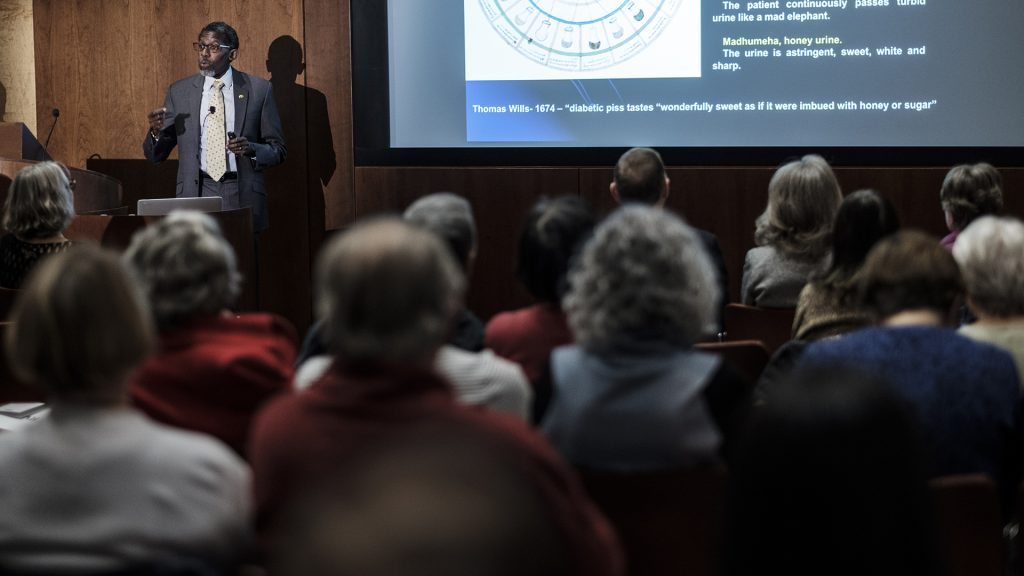By Paul Elwell
A Sunday lecture spoke from the heart, or rather, about it.
E. Dale Abel, the chairman of the University of Iowa Department of Internal Medicine, delivered the 35th-annual Presidential Lecture on Sunday at the Levitt Center.
The evening began with UI President Bruce Harreld introducing Abel, giving an overview of his extensive research, and telling several anecdotes about him from people who have worked with him during his research and his time at Oxford, where he received a Ph.D.
Abel’s lecture was titled “Overfeeding the Heart,” in which he discussed his research on diabetes and its connections to other health complications, particularly those pertaining to the heart.
“I would guess that everyone in this room knows somebody who is diabetic. I am confident that, with proper treatment, I could lower their blood-sugar levels,” Abel said. “However, I cannot lower their risk of heart failure.”
The tradition of the Presidential Lecture Series was established in 1984 by then-President James O. Freedman. Since then, 35 of the UI’s greatest minds have given lectures to community members, students, and staff about a wide variety of topics.
“Since James O. Freedman established this series 35 years ago, we have had physicists and astronomers, philosophers, and many others share their knowledge with us,” Harreld said.
This year, the committee nominated Abel. Assitant VP for external relations Jeneane Beck said he was chosen because Abel impressive research in high-impact diseases, his national leadership in solving pressing health-related challenges, and his interactions with others around the university, particularly students.
Abel began the lecture by giving statistics regarding the increasing prevalence of both obesity and diagnoses of diabetes around the world, showing it is a rapidly growing epidemic, despite the advancements in treatment and research. He attributed this to changes in the modern diet.
He then segued to discussing the connections to heart problems, showing statistics relating the increasing number of diabetics to the increase in heart-related conditions. Abel said 44 percent of people with a variance of heart disease are also diabetic.
However, as any good statistician will tell you, he said, correlation does not prove causation.
Abel then proceeded to discuss his extensive experimentation and studies linking heart problems to diabetes. These range from the observance of human hearts to creating special circumstances in animals.
Abel thanked everyone who made his research possible, ranging from his team of undergraduates, graduate students, and faculty at the UI, as well as researchers from other institutions. He also closed the lecture with a piece of advice as attendees were getting ready to migrate to the reception following the lecture.



